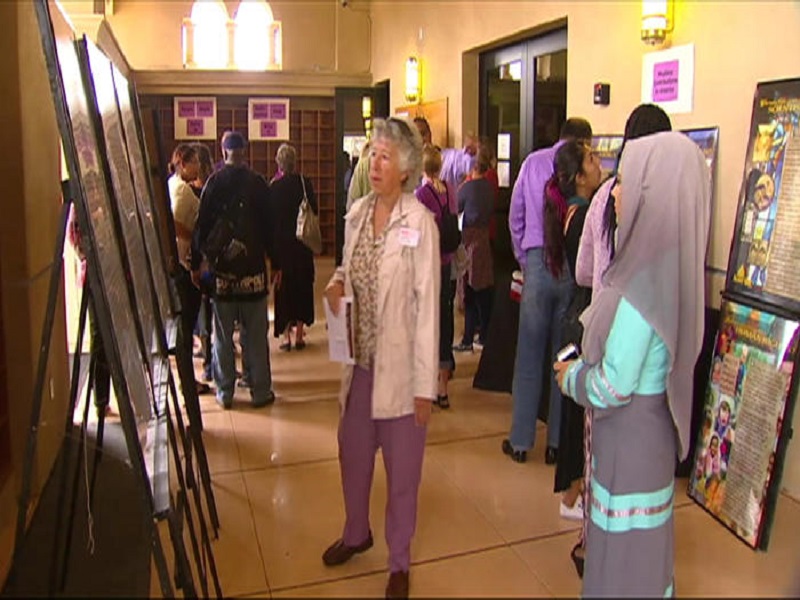(AhlulBayt News Agency) - American Muslims are opening their mosques to the public to educate people about Islam and counteract Donald Trump's misinformation.
Stopping all Muslim immigrants from coming to America has been one of Donald Trump's key foreign policy platforms. But American Muslims are fighting back against the Republican presidential candidate's racist and misinformed comments by opening their mosques, SBS News reported.
They hope by educating the public about Islam and what happens inside mosques they will reduce the stigma surrounding their religion on America.
Muslim voter Anna Givens told SBS News Islamophobia was "rampant" in the U.S., and that Trump was encouraging the hatred. "Anything that comes out of his mouth is just a joke, and unfortunately a lot of people take him seriously," she said.
"Women have their scarves ripped off them. A woman was egged. You know, it's very frightening, especially as a woman because we just want to hide." At the Muslim Community Centre of San Diego, members of the public are being given a beginner's guide to Islam; Owais Siddiqui told SBS News. "There're some misconceptions where people think that Islam preaches something that it doesn't," he said.
"We see people who might think Islam has something to do with terrorism or violence and we actively encourage those people just to come and just talk to us." The open mosques program also hopes to mobilize the one million new Muslim American voters.
Muslim Student Association President, Luqmaan Bokhary said it was disheartening to see how much hatred was directed at his community, but encouraging to see them becoming more involved politically.
"It's really disheartening to see how much hatred that has come about but at the same time you see the Muslim community that has almost become united, and they are trying their very best to be politically involved," he told SBS News.
"For the first time, my grandmother in the primaries said 'when's the time to vote?' Meanwhile, in 2012 she didn't even care to go out to the polls."
Siddiqui said members of the Muslim community were becoming more important to political candidates as their numbers grew.
"In years past perhaps candidates didn't particularly focus on trying to reach out to the Muslim community as much, but I think that is certainly happening this year," he said.
"Not just here in California but nationwide, in particular, the battleground states - Florida, Ohio and Pennsylvania are key battleground states where there are sizeable members of the Muslim community." A study released earlier this year by California State University-San Bernardino’s Center for the Study of Hate and Extremism found that incidents of anti-Muslim and anti-Arab violence in the U.S. increased drastically from 2014 to 2015, by 78.2 percent and 219 percent respectively, reaching levels that haven’t been seen since the immediate aftermath of the September 11, 2001, terrorist attacks, LobeLog News reported.
From its side, the Council on American-Islamic Relations (CAIR) found that 2015 saw the highest number of attacks directed against mosques in any year since it began tracking such incidents in 2009. So far, in 2016, the Huffington Post’s “Islamophobia tracker” has cataloged 289 anti-Muslim acts, which includes both violent and non-violent incidents.
The growth of Islamophobia is not unique to America, and it has coincided with a rise of right-wing populist movements all over the Western world, from Trump in the U.S. to the U.K. Independence Party in Britain to Marine Le Pen’s National Front party in France. At the Atlantic Council, activist Zainab Salbi talked about the toll this has taken on Muslim communities in Europe. “In France, Muslims are scared to say ‘I pray. Muslims are afraid to say ‘I don’t eat pork,’ because people will assume they’re radicalized.”
/257
source : SBS
Thursday
27 October 2016
1:57:25 PM
788161

American Muslims are opening their mosques to the public to educate people about Islam and counteract Donald Trump's misinformation.
